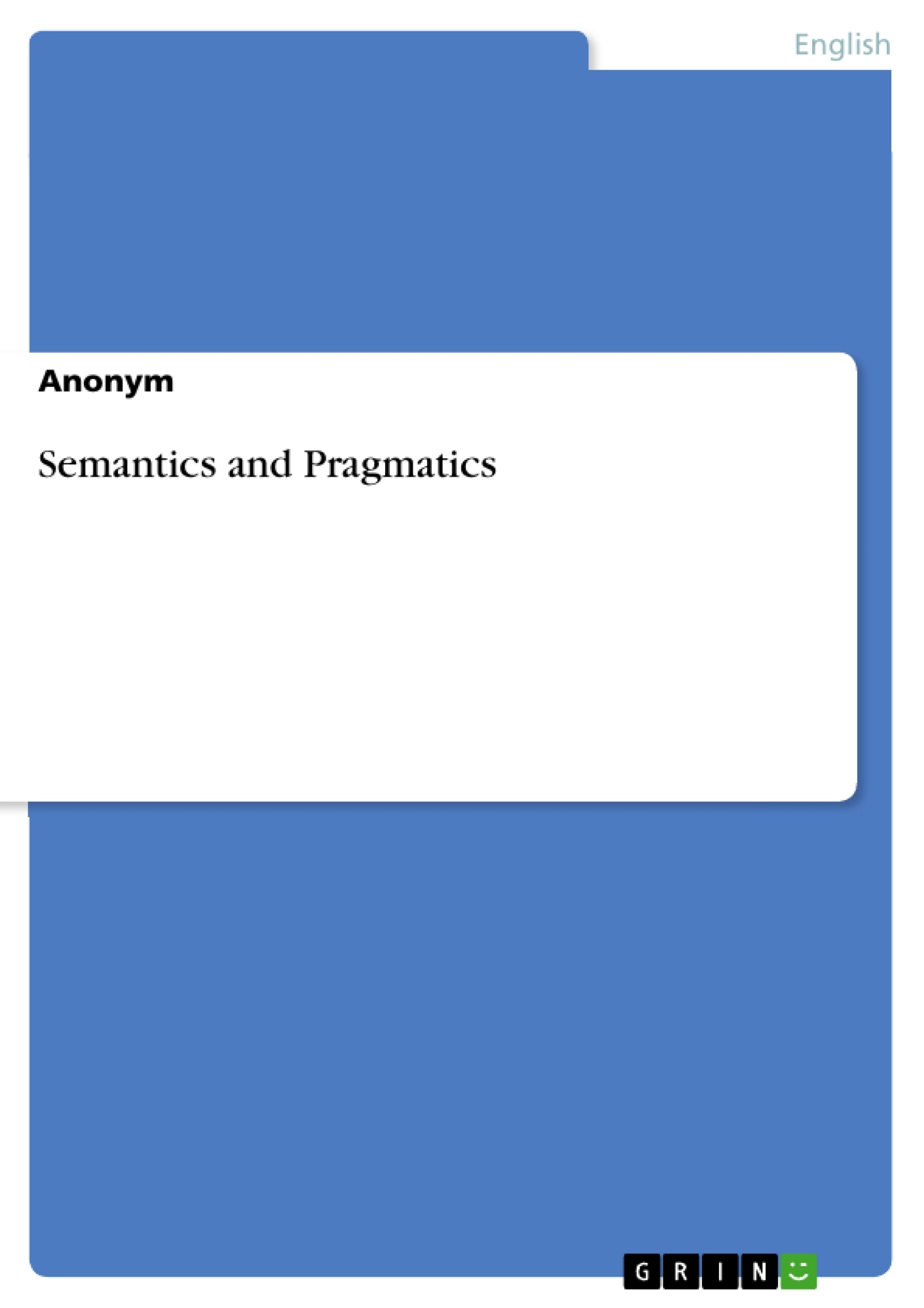The phonetic shape of the verb arrive, which is derived from the Middle English arīve(n) and further from the French verb arriver, has changed throughout different periods. We can assume that the vowel of the first syllable /a/ was reduced first to [e] and then to [ə] as the syllable is unstressed. This qualitative vowel change is a regular unconditioned change which, in this case, most likely
took place in the early Middle English period. In the Great Vowel Shift, the phonetic shape changed further as the long middle syllable was diphthongised to [ʌɪ] in an unconditioned change. Furthermore, a sporadic change can be identified as the final sound segment was lost, also called apocope.
Inhaltsverzeichnis (Table of Contents)
- 3 Semantics and sound change
- 4 Pragmatics
Zielsetzung und Themenschwerpunkte (Objectives and Key Themes)
This text analyzes phonetic and semantic changes in several English words across different historical periods, illustrating various types of sound changes (e.g., vowel reduction, diphthongization, apocope, syncope) and semantic shifts (e.g., generalization, metaphor, metonomy, amelioration, pejoration). It also examines pragmatic features in Shakespeare's "Twelfth Night," focusing on address forms, politeness strategies, and speech acts within the context of Early Modern English.
- Phonetic changes in English words over time.
- Semantic shifts and their underlying mechanisms.
- Analysis of pragmatic features in Early Modern English.
- The interplay between linguistic change and social context.
- Use of Shakespeare's "Twelfth Night" as a case study in historical pragmatics.
Zusammenfassung der Kapitel (Chapter Summaries)
3 Semantics and sound change
This chapter examines the phonetic and semantic evolution of several English words, including "arrive," "board," "business," "churl," and "fowl." It details specific sound changes like vowel shifts, consonant loss, and the impact of rhoticity. Semantic changes discussed include generalizations of meaning, metaphorical extensions, and metonymical shifts, showing how word meanings evolve and diversify over time.
4 Pragmatics
This chapter analyzes pragmatic features in Shakespeare's "Twelfth Night," focusing on address forms ("you," "thou"), politeness strategies, and speech acts within the context of Early Modern English. The usage of pronouns as forms of address, and their relationship to social status and politeness are examined. The chapter also touches upon the high degree of directness in Olivia's speech and the use of complimentary address forms by other characters.
Schlüsselwörter (Keywords)
Historical linguistics, semantics, phonetics, sound change, semantic change, pragmatics, Early Modern English, Shakespeare, "Twelfth Night," address forms, politeness, speech acts, metonomy, metaphor, apocope, syncope, diphthongization.
- Quote paper
- Anonym (Author), 2022, Semantics and Pragmatics , Munich, GRIN Verlag, https://www.grin.com/document/1511793




